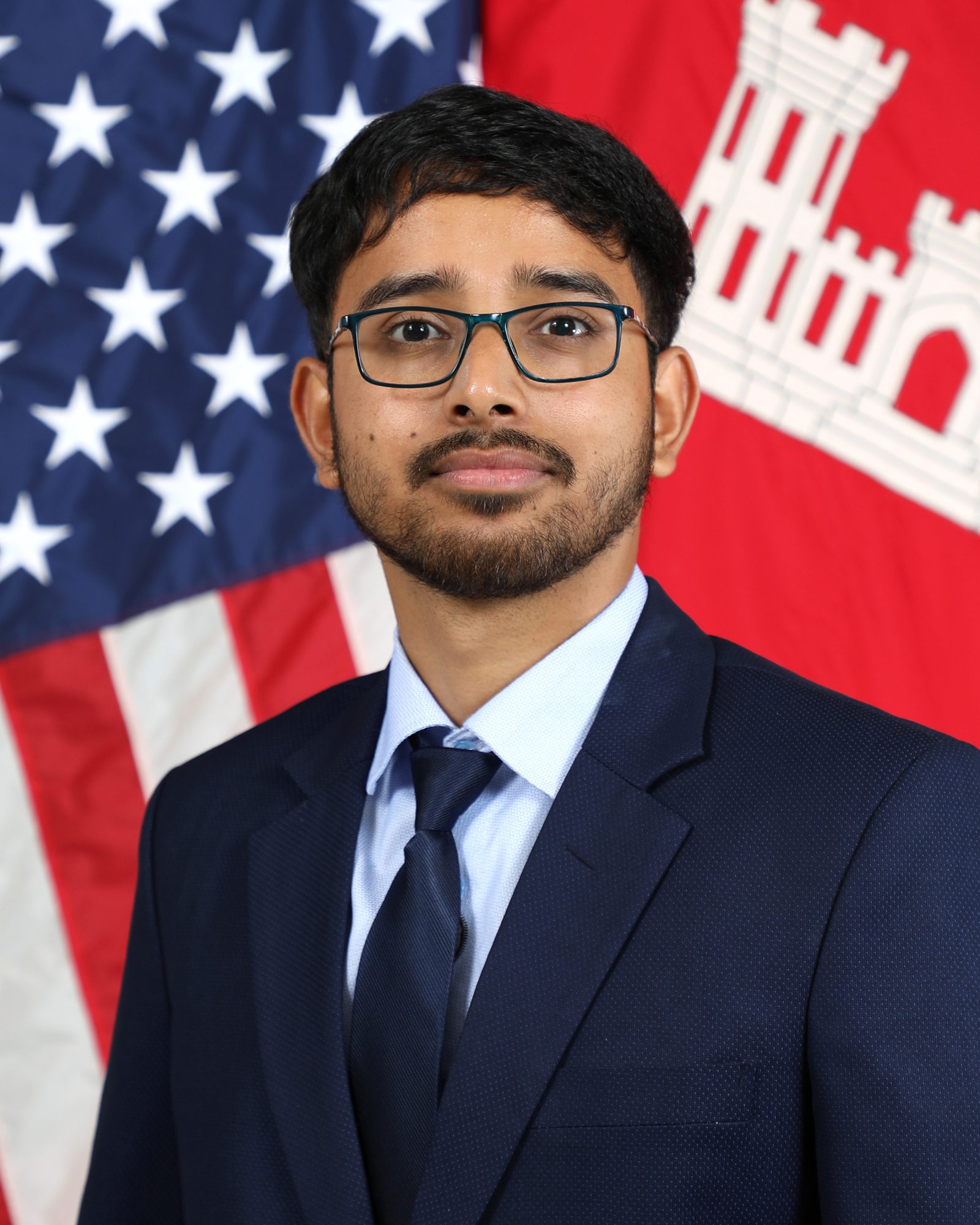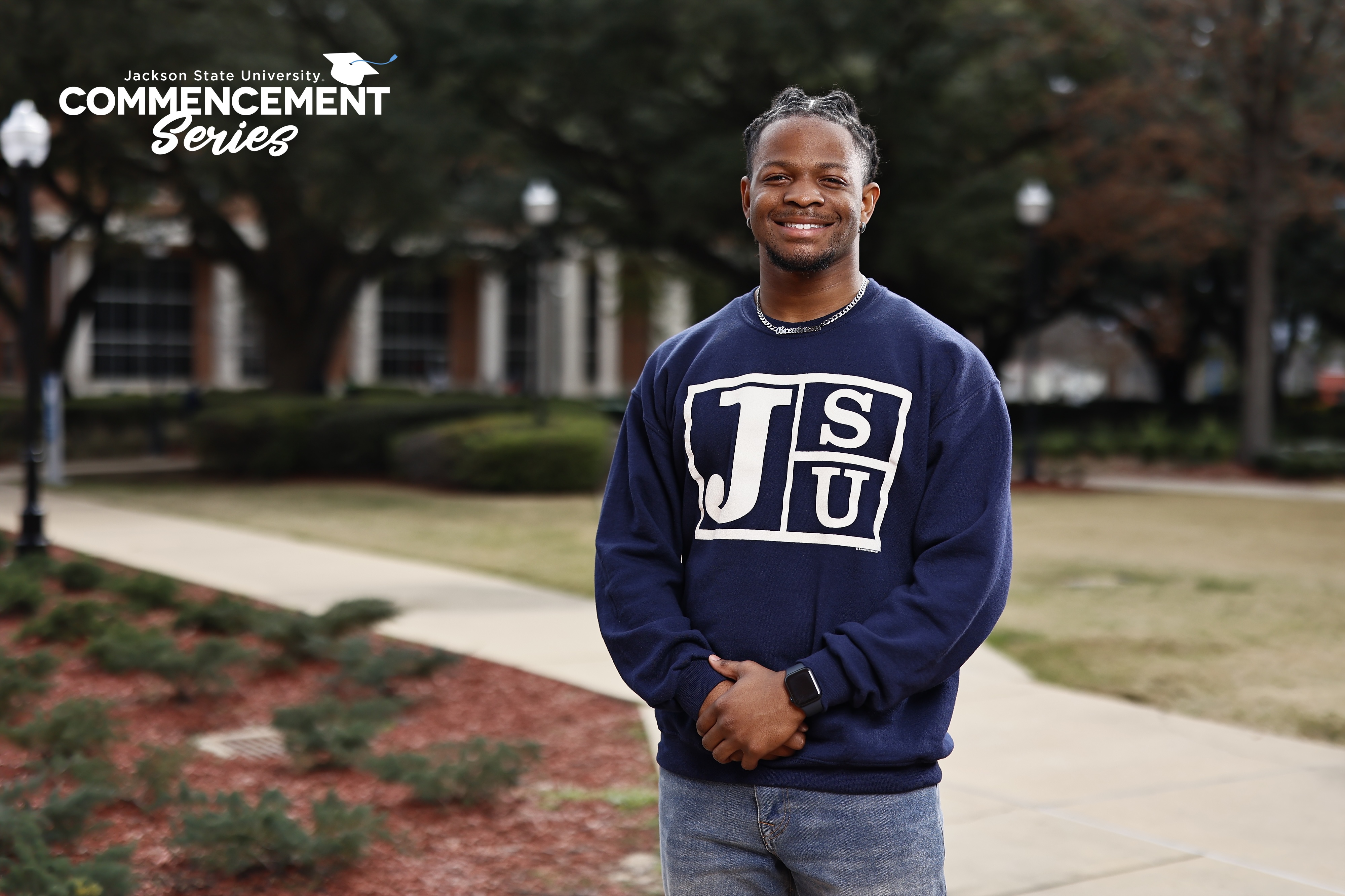By L.A. Warren
(JACKSON, Miss.) – Saurav Bhattarai, a graduate research assistant in the Department of Civil and Environmental Engineering at Jackson State University (JSU), is leading an interdisciplinary study on frequent heatwaves in Mississippi and their disproportionate effect on elderly, children, low-income communities and those with pre-existing health conditions. The goal is to mitigate the impact and protect public health with better strategies.
Bhattarai’s research is titled “Spatiotemporal characterization of heatwave exposure across historically vulnerable communities.” His study analyzed the disproportionate impact, highlighting how heatwaves affect communities that are more susceptible to adverse effects due to social, economic and demographic factors.
“Heatwaves are becoming more frequent, intense and prolonged due to climate change. They pose serious risks to human health,” said Bhattarai.
His findings aim to influence urban planning and infrastructure development to lessen the impact of heatwaves. Urban areas often experience higher temperatures due to the urban heat island effect, caused by factors such as reduced vegetation, heat-absorbing surfaces and anthropogenic heat sources.
“Studies have shown that low-income neighborhoods and communities of color often face higher exposure to extreme heat due to factors such as poor housing conditions, lack of access to air conditioning and limited green spaces,” Bhattarai added. “By identifying these disparities, our work can support advocacy efforts and policy changes to address the root causes of vulnerability and promote equitable access to resources and services during heatwaves.”
To address these multifaceted challenges, Bhattarai’s research draws upon expertise in hydrology, climatology, urban planning, public health and social sciences. Such collaboration aligns with his efforts to promote diversity, equity and inclusion for innovative solutions. This is especially important to him as a Nepalese scholar.
“I aim to inspire and support underrepresented students in STEM fields, contributing to a more diverse and inclusive scientific community.” Bhattarai plans to develop and refine a Python notebook-based tool that would allow students, researchers and practitioners to easily access, analyze and visualize historical heatwave patterns, climate indices and future projections based on different climate change scenarios.
This research is supported by the Hydrological Impacts Computing, Outreach and Resiliency Partnership (HICORPS) Project, which is a collaboration between JSU, the U.S. Army Engineer Research and Development Center (ERDC) and Woolpert (a multifaceted Australian-based firm that contributes to environmental solutions).
Ultimately, Bhattarai envisions city planners and policymakers prioritizing green infrastructure projects, such as parks, green roofs and tree planting. “These nature-based solutions can help cool down urban environments, improve air quality and provide health and social benefits to the community.” He believes his research also could spur public health agencies such as the Federal Emergency Management Agency (FEMA) or the Department of Housing and Urban Development (HUD) to prioritize funding for weatherization assistance and energy efficiency upgrades. As well, he foresees local governments and community organizations setting up cooling centers, distributing fans or air conditioners, providing financial assistance for energy bills and enhancing public awareness about heat safety.
“Our research can help utilities and energy companies plan for increased electricity demand during heatwaves and develop strategies to ensure the reliability of the power grid. By mapping the areas with the highest heatwave exposure, they can identify potential hotspots for power outages and implement measures to prevent cascading failures.”
The heatwave project is supervised by Rocky Talchabhadel, Ph.D., an assistant professor in JSU’s Department of Civil and Environmental Engineering. Other collaborators include Howard University’s Sanjib Sharma, Ph.D., and JSU faculty Farshad Amini, Ph.D., and Loren D. White, Ph.D., in the College of Science, Engineering and Technology, and JSU graduate research assistant Sunil Bista.







